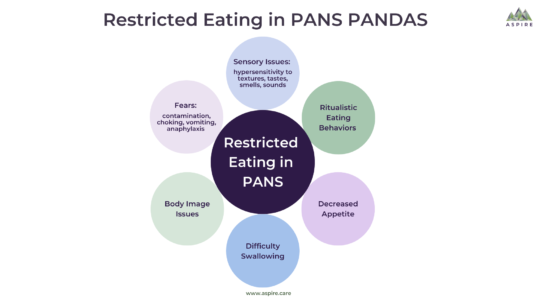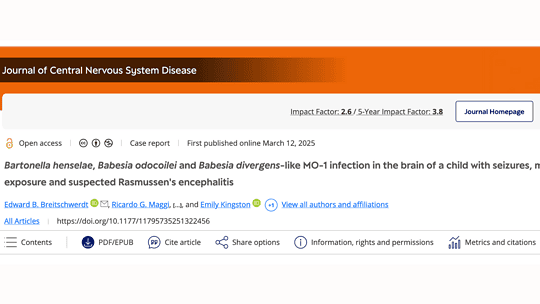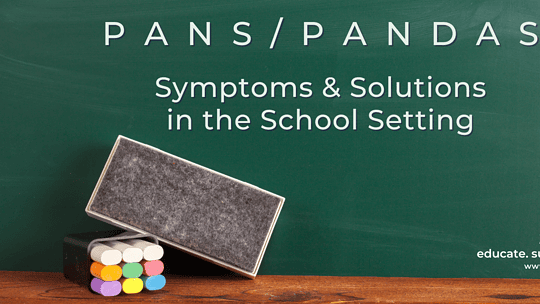Blog

New York/Connecticut ChitChat Meet Up
In-Person - Danbury, CT - Thursday, June 12 - 10:00am-12:00pm...

Haylie’s Healing Journey: A Story of Strength and Resilience
The key to treatment was aggressive intervention. But finding the right doctors was a battle. Most practitioners were unaware of PANS or didn’t believe in its severity. We were lucky to get a...
Immunological drivers and potential novel drug targets for major psychiatric, neurodevelopmental, and neurodegenerative conditions
Dardani, C., Robinson, J.W., Jones, H.J. et al. Immunological drivers and potential novel drug targets for major psychiatric, neurodevelopmental, and neurodegenerative conditions. Mol Psychiatry 30, 4487–4496 (2025). https://doi.org/10.1038/s41380-025-03032-x
- Study used Mendelian randomization and genetic colocalisation to assess causality between immune biomarkers and neuropsychiatric disease
- 736 immune-related biomarkers were analyzed across blood and brain tissue
- Evidence supported a potential causal role for 29 immune biomarkers across 7 neuropsychiatric conditions
- Findings implicate both systemic and brain-specific immune mechanisms in schizophrenia, Alzheimer’s disease, depression, and bipolar disorder
- 20 identified biomarkers are therapeutically actionable, including ACE, TNFRSF17, SERPING1, AGER, and CD40
- Results help prioritize immune targets for future mechanistic studies and treatment development, though causality requires further validation

PANS & Eating Disorder/Food Restrictions & Toolkits/Handouts
PANS PANDAS & Eating Disorders/Food Restrictions – Full Packet of Recent studies and Flyer. Please note that the Flyer is also available in two poster sizes...

Nutrition for PANS & PANDAS
Nutrition is vital for kids with PANS/PANDAS, conditions tied to OCD and infections like strep that disrupt eating habits, causing nutrient deficiencies and gut issues. Registered Dietitians (RDs)...
Defining Clinical Course of Patients Evaluated for Pediatric Acute-Onset Neuropsychiatric Syndrome: Phenotypic Classification Based on 10 Years of Clinical Data
- 10-year Stanford IBH study standardizes how PANS patient status and flares are defined, including flare vs recovery, acuity of onset, duration, and trajectory.
- 74% of patients meeting PANS criteria had a relapsing–remitting course rather than continuous illness.
- 43% experienced a persistent clinical course (>12 months of impairment), yet 77% ultimately recovered.
- 57% never developed persistent symptoms and typically had 1–3 flares per year, each lasting about 3 months.
- Findings reinforce PANS as a heterogeneous, episodic condition where persistence does not rule out recovery.

Louisiana families fight rare condition
PANS or PANDAS refers to what some doctors call Pediatric Autoimmune Neuropsychiatric Disorders Associated with Streptococcal Infections. It’s an often misunderstood and misdiagnosed disease that...
Sudden Onset Disordered Eating Behaviors and Appetite Issues in a Local Clinical Cohort of Children With Pediatric Acute-Onset Neuropsychiatric Syndrome (PANS)
- 130 youth with PANS (ages 4–18) reviewed at a specialty clinic
- 56% developed abrupt-onset restrictive eating during flares
- Eating restriction patterns mirrored ARFID presentations
- Most affected youth had severe concurrent neuropsychiatric symptoms
- 12% had baseline eating restriction, often worsened during flares

Seizures Linked to Bartonella and Babesia
Imagine a child suffering from seizures, only to discover years later that the cause might be tied to a cat scratch and an insect bite. A groundbreaking case study from North Carolina State...

School In-Service Lectures at ASPIRE
Students with PANS/PANDAS have complex cognitive, behavioral, physical & neurological symptoms that affect their school performance. The school's multidisciplinary team benefits from an awareness of...

